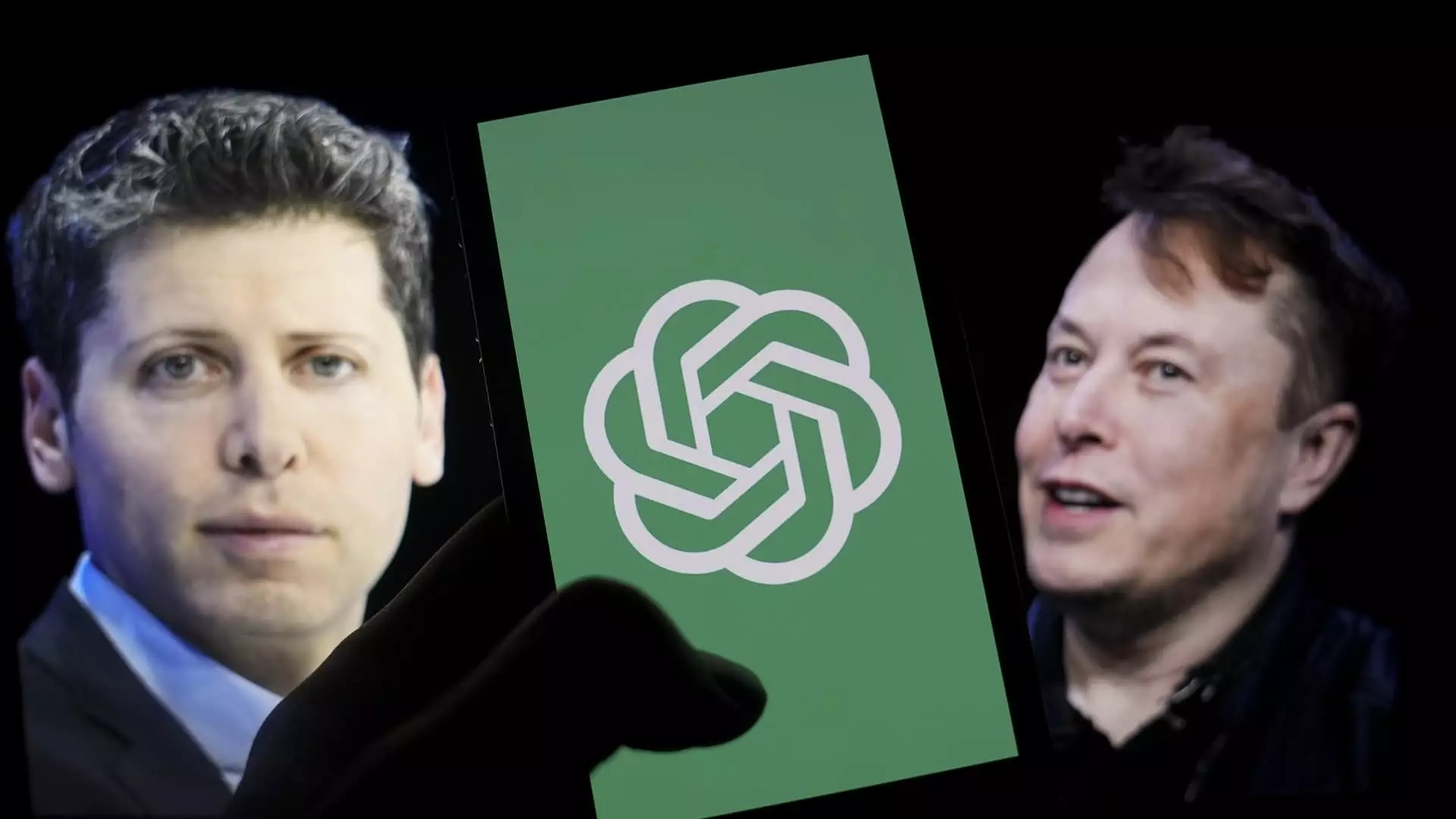The ongoing legal dispute between Elon Musk and OpenAI marks a crucial moment in the evolution of artificial intelligence and the economics that underpin its development. With Musk’s recent plea to a federal court for a preliminary injunction against OpenAI, this story exposes not just personal rivalries but raises critical questions surrounding intellectual property, competition, and the interplay of ethics and profit in the burgeoning AI industry.
At the center of Musk’s allegations lies an argument invoking the Racketeer Influenced and Corrupt Organizations (RICO) Act. In his initial lawsuit, Musk accused OpenAI of manipulating investor agreements to undermine competition, thereby creating a monopoly-like situation in the AI realm. This notion of a “group boycott”—where investors are reportedly coerced into withholding funds from potential rivals—adds a convoluted layer to the already complex legal landscape of competitive business practices. Musk’s legal team, led by attorney Marc Toberoff, suggests this not only violates RICO principles but also raises antitrust concerns.
Furthermore, the ongoing restructuring of OpenAI from its original non-profit model to a fully for-profit entity complicates the narrative. Musk’s contention hinges on the ethical responsibilities of AI developers, suggesting that OpenAI’s transition could prioritize financial gain over technological advancement and ethical conduct. As OpenAI seeks to attract more investors in a rapidly evolving market, the resulting power dynamics could have lasting repercussions on the industry.
Musk’s lawsuit arrives at an important juncture in the AI sector. With OpenAI achieving significant milestones with products like ChatGPT, the commercial appeal of generative AI has skyrocketed. This increase in market interest has also led to an influx of capital into the industry, causing established players and startups alike to ramp up their competition.
The potential impact of Musk’s allegations extends beyond legalities; they raise questions about transparency and ethical practices among tech giants. Should the court rule in favor of Musk, it could pave the way for stricter regulations on how companies can negotiate and ally with one another, especially in sectors characterized by rapid innovation. The implications could redefine standards of competition and collaboration, particularly in a space that is as contentious and closely watched as AI.
Major stakeholders in the AI ecosystem, such as Microsoft and Reid Hoffman, add complexity to this legal drama. Musk’s criticism of Microsoft, which has heavily invested in OpenAI, indicates a broader narrative of unease about the monopolistic tendencies in the tech industry. His claims suggest that the collaboration between these tech giants poses a significant risk to fair competition and innovation.
Nevertheless, Microsoft’s decision to withdraw its observer seat on OpenAI’s board has not allayed fears. As regulatory bodies like the Federal Trade Commission (FTC) increase scrutiny of the relationships among tech firms, Musk’s lawsuit could become a catalyst for heightened scrutiny across the sector.
As Musk pursues his own AI venture, xAI, the stakes are undoubtedly personal. The company is vying for its place in a market projected to exceed $1 trillion in revenue within the next decade. While Musk’s xAI has ambitious plans, including raising funds reportedly as high as $6 billion for further technological development, the shadow of OpenAI’s existing dominance looms large. The success of xAI, and Musk’s reputation as a tech innovator, could hinge on the outcome of this legal battle.
With competing startups like Anthropic and the likes of Google also gaining momentum, any favorable ruling for Musk could invigorate competitors and lead to a more fragmented and diverse landscape in AI development. This diversified competitive environment could potentially foster greater innovation and ethical standards in artificial intelligence.
Elon Musk’s legal saber-rattling against OpenAI is about far more than just corporate rivalry. It embodies deeper issues regarding the ethical implications of rapid technological advancement and the competitive landscape that surrounds it. As the federal court considers Musk’s request for an injunction, the implications of this case could reverberate well beyond the immediate parties involved. This legal confrontation may ultimately mold the future ethics and practices of AI development, laying down ground rules that govern how companies interact and compete in this dynamic, vital industry. The outcome will likely define the balance between profit and progress, with potential ripple effects for years to come.

